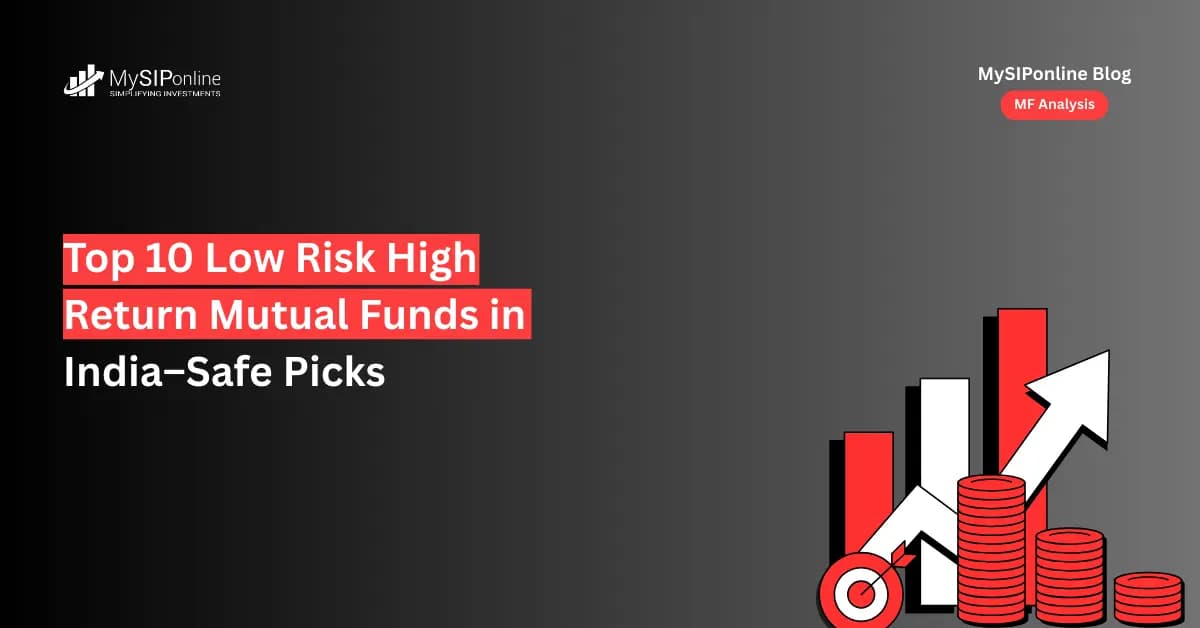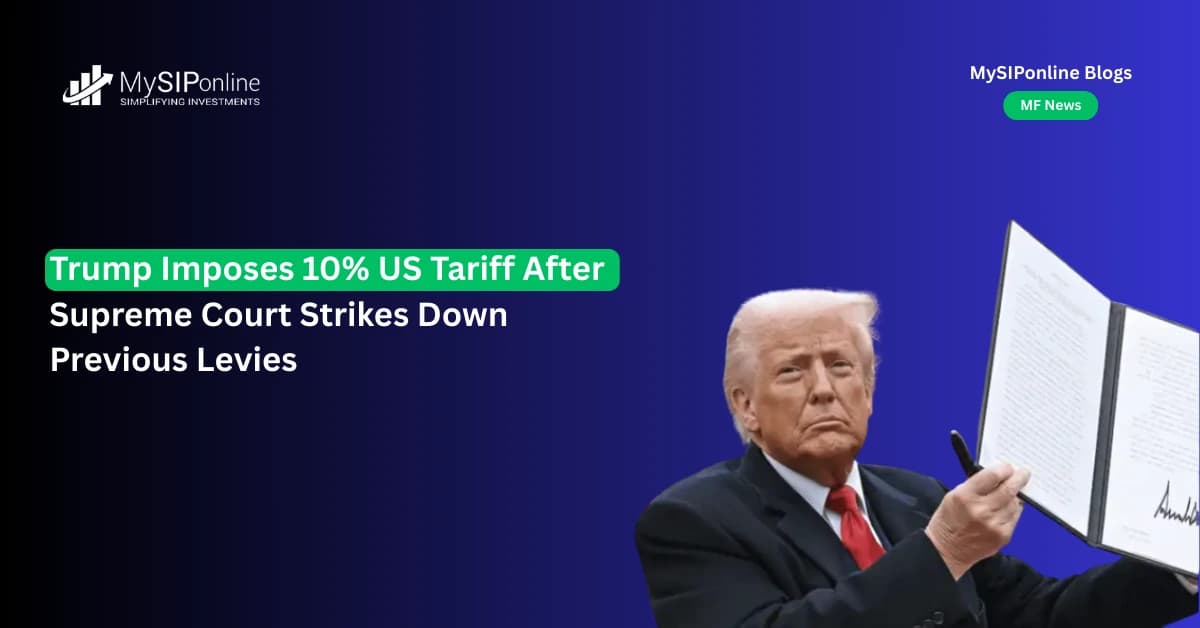The re-introduction of 10% tax on long-term capital gains arising from the transfer of listed equity shares and equity mutual fund units that exceed Rs 1 lakh has raised the eyebrows of many investors. Further, it doesn’t even allow any indexation benefit, but it’s a relief that the gains up to January 31, 2018, will be grandfathered.
The big move has indeed impacted all including Foreign investors as well as the Retail ones. You too might be dealing with a lot of unanswered questions related to it. In response to your problems, we, at MySIPonline, have brought you the list of most commonly answered questions related to the issue.
Long-Term Capital Gains Tax – FAQs
Q1. What does the budget 2018 proposed on LTCG for equities?
Ans – The exempted LTCG tax has been reintroduced in the Union Budget 2018, where the same was active before 2004. Now, it has been introduced with the grandfathered clause, which states that the LTCG exceeding Rs 1 lakh on the sale of equity shares or units of mutual funds are to be taxed at 10% without the allowance of indexation benefit. However, with the grandfather clause, the cost of purchase will remain same which was on the date of purchase, but the cost of acquisition of the share or unit bought before February 1, 2018, will be:
- Higher by: the actual cost of acquisition of the asset.
- Lower by: (i) The fair market value of this asset (highest price of the share on the stock exchange on January 31, 2018, or when the share was last traded. NAV of the unit in case of a mutual fund unit). And (ii) The sale value received/accrued when the share/unit is sold.
Q2. When is this tax Leviable?
Ans – The proposed law will be applicable for the next assessment year, i.e., FY19-20, for it being a Direct Tax proposal. In other words, the long-term capital gains of over Rs 1 lakh which are made for the FY18-19( April 2018 to Mar 2019), will be liable to tax at 10% in the corresponding FY19-20.
Q3. Does it mean that there is no tax liability on LTCG for Assessment Year 2018-2019 (FY17-18)?
Ans – You need to understand the exact proposal in detail. From the top, it appears that any LTCG tax will not be applicable from FY18-19 on plain read. But, this is something which needs a greater degree of experts’ study.
Q4. Explain the relevance of the cut-off date of January 31, 2018.
Ans – Finance Minister, Mr. Arun Jaitley has introduced grandfathering provision to long-term capital gains from equities up to January 31, 2018. Therefore, it has differentiated the meaning of the cost of purchase and cost of acquisition. Where the cost of purchase will be the same as the date of purchase but the cost of acquisition will be the value on January 31, 2018. Any incremental profits after that will be counted as LT Capital gains and will be levied for the proposed tax.
Q5. What is grandfathering clause? What is its effect on the LTCG tax proposal?
Ans – Here, grandfathering denotes exempting something or someone from the proposed new law or regulation. In the case of LTCG tax on equities’ profits of over 1 lakh, the grandfather condition has made the overall impact on the market sentiment entirely negligible. If there were no such condition, the market would have collapsed.
Q6. What happens to your tax liability if you sell stocks starting today held for more than one year?
Ans – As for LT Capital gains made in Financial Year 17-18 (i.e., sale up to March 31, 2018), there is no tax. However, if it is made after April 1, 2018, then it will not be exempted due to the new tax rules. To have a clear understanding, segregate this long-term capital gain into two parts:
- The first one includes the LTCG made up to January 31, 2018. This will be the highest price of the stock on January 31, 2018, minus the cost of acquiring stock.
- In the second one, the LT capital gains made after January 31, 2018, is included. This will be sale price minus the highest rate of the stock on January 31, 2018.
While the first segment will be exempt from the proposed tax, it is just the second part which will be assessed as LT Capital gains (it can also be a Capital loss) for Tax. Tax on this will be computed at the rate of 10% (+cess of 3%) only if the gain exceeds Rs 1 lakh.
Q7. What new strategy on equity investments can be followed now?
Ans – The equity investors who are willing to reduce their tax liability on LTCG can either sell the stocks starting today till March 31, 2018, and this way they can incur zero tax. However, the condition here is that the holding period should be at greater than one year.
The second opinion is that they can continue buying equity shares without any hesitation. But any future sales after the financial year end 2017-2018 has to be judiciously chosen to reduce the tax liability. Consider that your equity investment yields a return of 15% every year. This way, an investment of Rs 6.66 lakh will rise to Rs 7.66 lakh annually and gains booked thereof will be tax-free. Even if the profits exceed 15%, say it becomes 25%, the LT gains tax will have amounted to Rs 6,667/- only.
Q8. What should the equity investors do?
Ans – Analyzing the current situation, the long-term capital gain may act as a discouragement for the equity investors, and there is a knee-jerk reaction right after the announcement. But, the investors should understand that they will be able to generate extra returns only when they hold their investment for long-term to experience the real magic of power of compounding. Thus, experts advise them to keep calm instead of getting anxious and concentrate on their investment objectives in the first place.
Bottom Line:
We cannot ignore the current situation concerning the market post introduction of Budget 2018. With the slight difference in the tax percentage of short-term capital gains and proposed long-term capital gains, people will churn their portfolios faster. This can further create a negative impact on the corpus in the long run. Here, it will be wise to remind oneself of the fact that it is the equity instrument which will still attract the lowest rate of tax, and this clearly proves that the asset class will continue to see good flows.
In case you have any other query, ask us in the comment section below. For more such updates and interesting investment tips, stay in touch with us at MySIPonline. We provide the best online SIP investment services which can help you effortlessly achieve your financial objectives.






.webp&w=3840&q=75)




